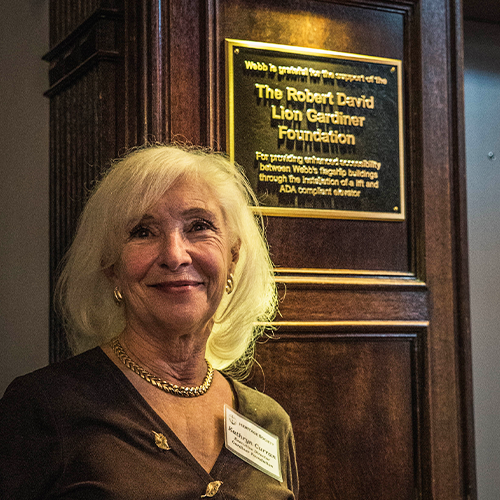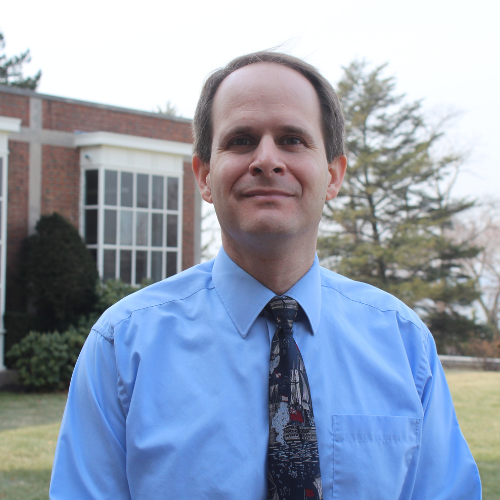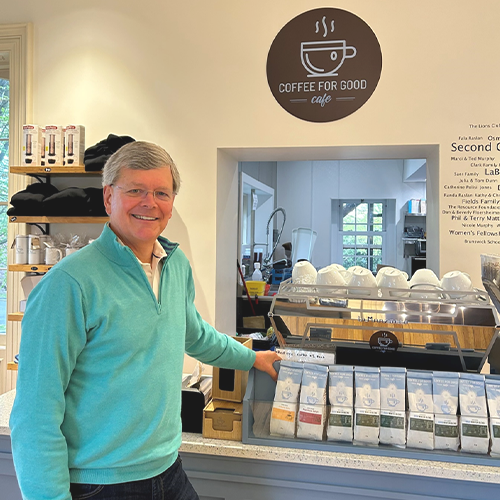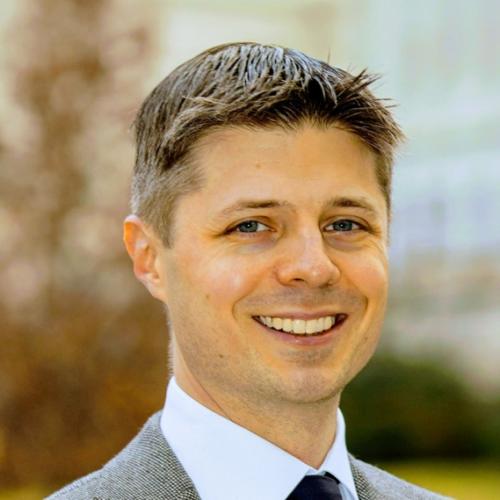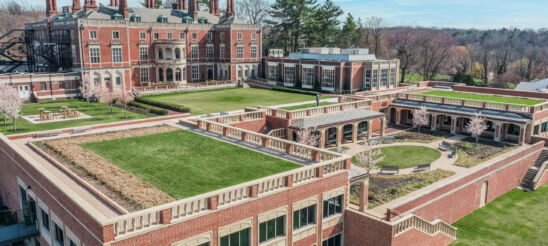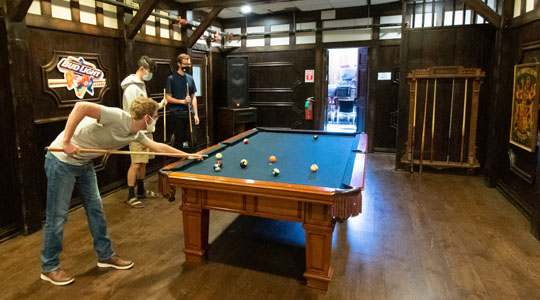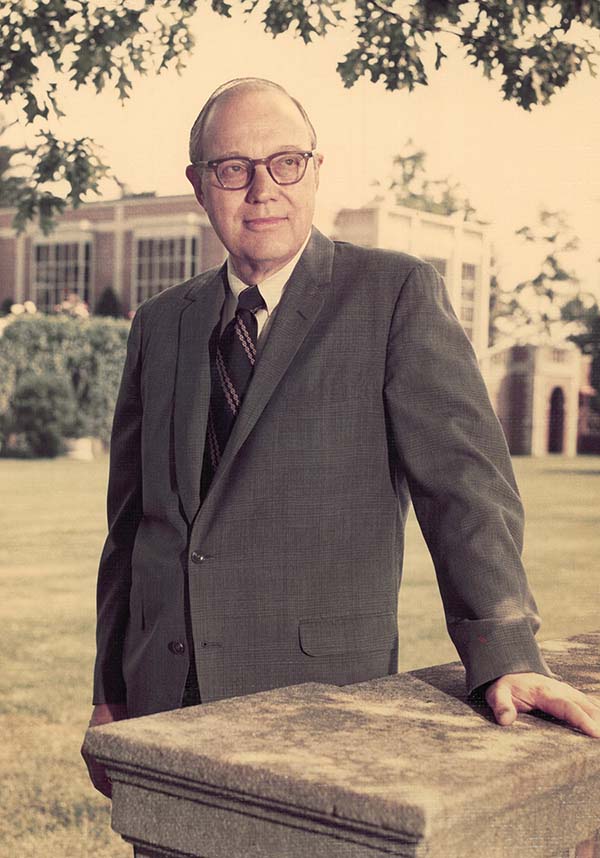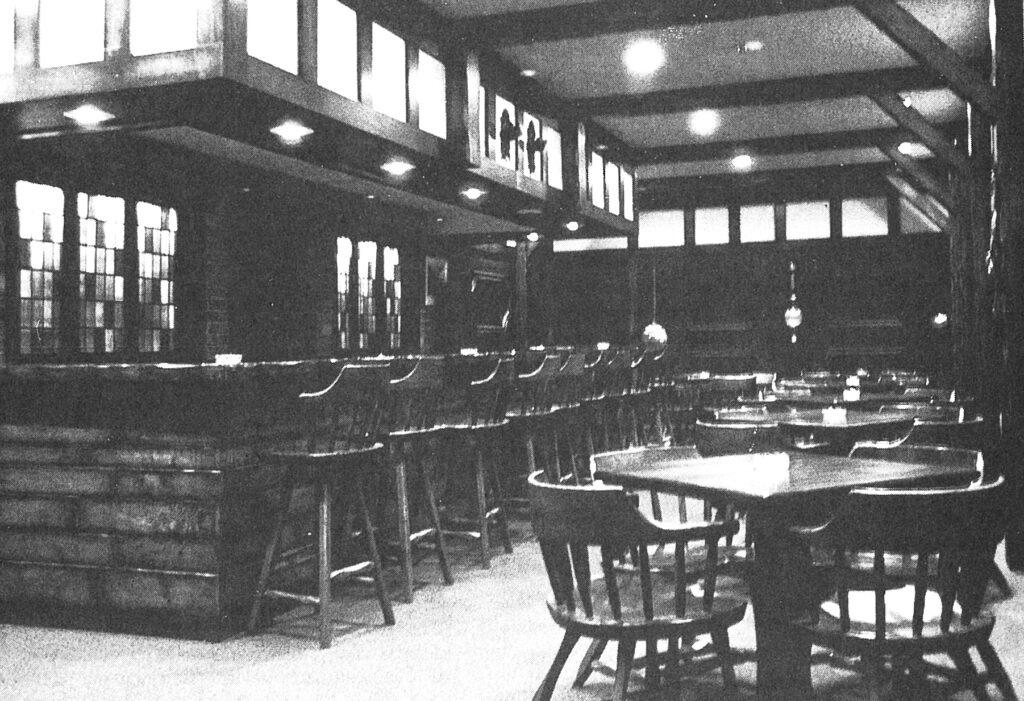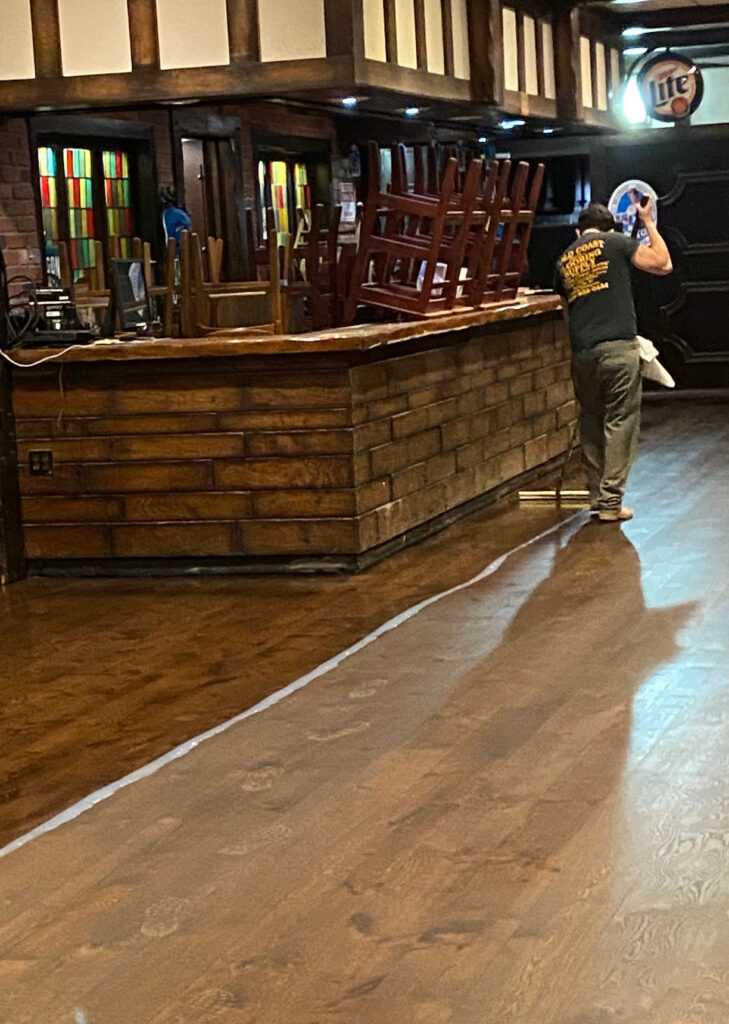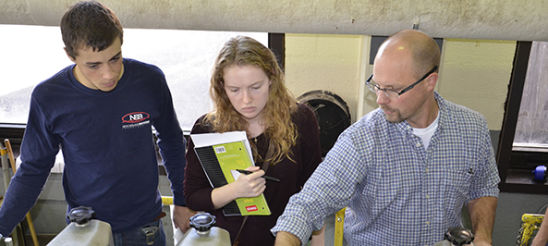Since 2018, the Robert David Lion Gardiner Foundation has played a major role in supporting Webb’s ability to attract and retain the brightest students, regardless of financial means, by providing need-based grants to students for their room and board costs. With contributions of $325,000 over two multi-year grants, the Foundation’s giving helps make a Webb education truly accessible to all.
Webb is experiencing a banner year in admissions with a 32% increase in total applications over the last three years, a 34% increase in female applicants and an over-50% increase in students expected to require financial assistance if admitted, with an increasingly diverse applicant pool and growing numbers of first-generation college applicants. The final makeup of the Class of 2028 is still developing – the admissions process is underway, including student exams, interviews, and overnight visits which give prospective students an appreciation for what makes Webb special – and the support of our donors plays a key role in Webb’s commitment to meeting the full demonstrated need of Webb students.
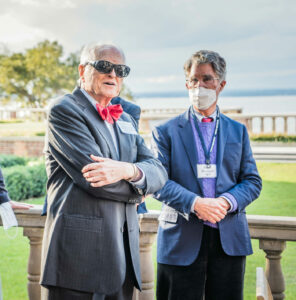
The Honorable Peter Fox Cohalan, Trustee of the Gardiner Foundation
“The Robert D. L. Gardiner Foundation proudly recognizes and supports Webb Institute’s steadfast commitment to maritime heritage and educational excellence. The Foundation is eager to further William Webb’s mission of attracting and educating tomorrow’s leaders in an extraordinary learning community focused on engineering and design in the maritime field. We are proud of our continued partnership with Webb,” said Kathryn M. Curran, Executive Director of the Robert David Lion Gardiner Foundation.
Students who have benefited from Gardiner Foundation grants echo a collective “thank you” for helping make their Webb education possible. While each Webb student is awarded a full-tuition scholarship, supported by contributions from generous Webb donors which augment the endowment, room and board costs represent a significant outlay for many families, and this additional support is vital to a successful Webb experience.
Amongst current and future Webbies are voices that resonate with hope and gratitude. Some know their life’s path and just need support to navigate it:
“During my college search, I was actively looking for schools with strong naval architecture programs. I then met a graduate of the United States Naval Academy and asked his opinion on what he felt was the best school in this discipline. Without hesitation, he said, ‘Webb Institute!’ After my first visit to Webb, it immediately became my school of choice,” said Rayne Duff ‘25.
Others come to Webb with a passion for engineering and are later exposed to the tight-knit maritime world. Meet Karissa Nieves ’27, whose passion is matched at Webb by the support she receives. “My favorite part of being here is the Webb community. For once in my life, I feel accepted by my peers and have found people that I really connect with.”
Webb’s unique Winter Work internships have just wrapped up, with our students gaining real-life experience working across the United States and around the world. Not only do they come back with tales of discovery, adventure, and friendship, but the internships play a key role in securing the 100% job placement that Webb has become known for.
We thank the Robert D. L. Gardiner Foundation for being part of the Webb legacy that is shaping the future, one student at a time.
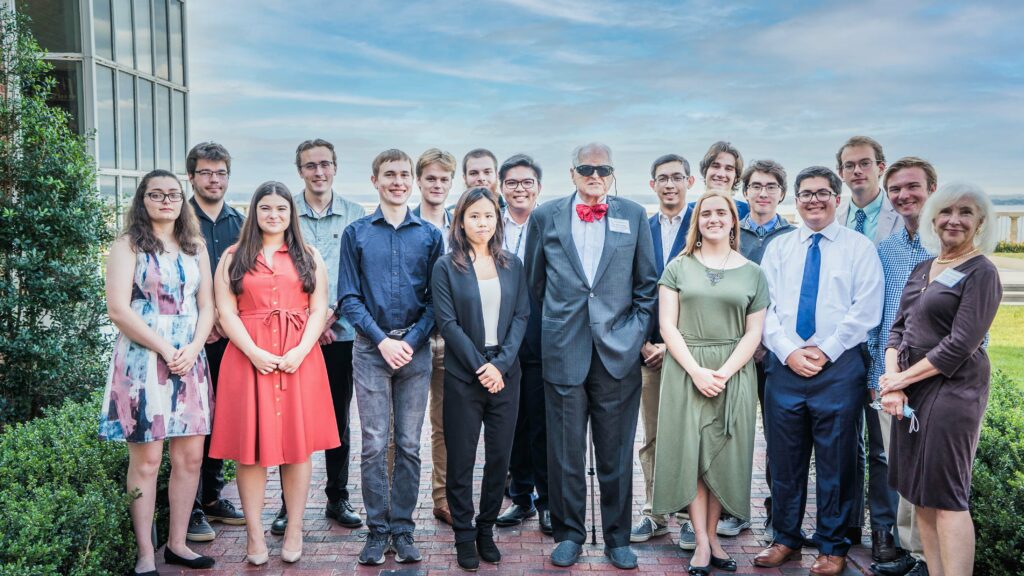
The Honorable Peter Fox Cohalan with a group of Webb scholarship honorees.
Bringing Nutrition Education to Webb
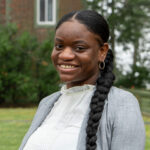 By Kayla Green
By Kayla Green
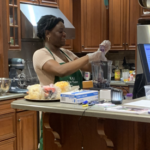
Kayla demonstrating proper smoothie-making technique.
Nutrition initiatives in college are crucial for promoting a healthy lifestyle and improving the overall well-being of the student body. I realized the importance of maintaining a balanced diet and making informed food choices when I was in college, and I continue to use what I learned to make health-focused decisions in my life. FLIK, Webb’s culinary service prides itself on putting “wellness center stage.” They provide a wide range of fresh fruits, vegetables, and whole grains on their menus and account for a variety of dietary restrictions and allergies. Having these options readily accessible makes it easier to prioritize nutritious meals and snacks; however, even so, knowing what to eat to maintain a healthy and balanced diet can be difficult.
At Webb, where students are regularly challenged by a rigorous curriculum, packed schedule, and academic stress, maintaining a healthy lifestyle is especially important, but can often fall behind other priorities.
This Spring, the Office of Admissions, therefore partnered with health educators, to educate our community on nutrition. This started with a Monday Lecture from Christina Brockett, MS, CNS, LDN, a licensed Clinical Nutritionist, who offers individual nutritional counseling, group nutritional programs, custom educational talks and presentations, and corporate wellness programs. Ms. Brockett also explored how nutrition impacts mental health. At the Monday Lecture, Ms. Brockett provided Webbies with insight on how to properly fuel their bodies and adopt good habits while trying to meet the demands of Webb’s rigorous academic program. Using Webb’s food menus provided by FLIK, she tailored her presentation to Webb’s current food offerings. Her ability to present the subject in an engaging way, while connecting it to the Webbie experience made the presentation relevant and memorable.
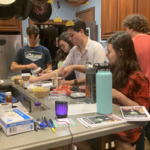
Webbies enjoying nutritional snacks.
Building off of this lecture, I had the opportunity to co-host several mini, cooking classes with Anna Boyd, MS, RD, RND (and Webb Professor Spenser Boyd’s wife), whose field of expertise is in nutrition and dietetics. Final exam season is typically a time when studying takes priority and healthy eating takes a backseat, which can impact student performance. I, therefore, developed a Brain Booster Smoothie Bowl demo series. Smoothie Bowls are a healthy, but tasty snack that can support students with the nutrients needed for a full day of studying.
The goal of these initiatives was to provide information that could equip students with the practical skills, nutritional knowledge, and appreciation for healthy eating. These classes have the potential to shape one’s approach to food and promote a balanced, nutritious lifestyle. By prioritizing the physical well-being of students, colleges can create a supportive environment that fosters healthy habits and empowers individuals to make positive choices for their long-term health and success.
Bradley Golden Promoted to Associate Professor of Naval Architecture
Webb Institute is delighted to announce the promotion of Bradley D.M. Golden to the position of Associate Professor of Naval Architecture. Professor Golden has demonstrated a great dedication to his alma mater.
Professor Golden graduated from Webb in 1999 before earning a Master of Science in Marine Technology from the University of Newcastle in 2000. After his graduate studies, he worked as a naval architect and later as President at an offshore shipping and engineering consultancy, leading the company’s team of naval architects on technical, design, and construction projects.
In 2018, he joined Webb as Assistant Professor of Naval Architecture. In this role, he has taught a variety of courses on naval architecture, marine engineering, and ship design. Professor Golden serves as a mentor and thesis advisor and guides students on their research projects.
In addition to his teaching, Professor Golden stays involved with the professional community of Naval Architecture and Marine Engineering (NAME). He launched the groundbreaking Sustainability and Ship Design (SISD) summit at Webb. With internationally recognized speakers presenting, these conferences have become a must-attend for industry experts.
Please join us in congratulating Professor Golden on his well-deserved promotion.
Embodying Success and Service: Honoring Jon J. LaBerge for His Impact at Webb and Beyond
William Selkirk Owen was a prominent figure in the world of naval architecture and marine engineering, having greatly influenced the development of Webb Institute as both professor and Dean of Faculty. His unwavering support for Webb and its students, combined with his commitment to excellence and strong character, left a lasting impact on the institution. In his honor, the Webb Alumni Association established the William Selkirk Owen Award to recognize outstanding achievement and service.
We are delighted to introduce this month’s blogger and the 2022 William Selkirk Owen Award recipient, Jon J. LaBerge, who is also a dedicated member of Webb’s Board of Trustees and an accomplished professional. Jon’s dedication embodies the spirit of Webb and the prestigious award named after W. Selkirk Owen.
In this blog post, Jon shares his journey from his student days at Webb to his thriving career and community service. He speaks on the role that Webb played in shaping him as a leader and committing to social responsibility. Read on to learn more about his unique perspective and how his Webb experiences have made a great impact on his life and career.
In recognition of his invaluable contributions to Webb, please join us in honoring Jon J. LaBerge as the 2022 William Selkirk Owen Award recipient during our Homecoming event on campus, scheduled for May 20, 2023. We hope to see you there.
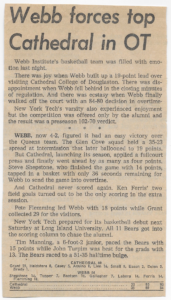
Webb Basketball’s Winning Streak: Webb’s Basketball has a brief moment in history as it is commemorated in a rare news clipping and is unmatched for decades to come.
Considering who William Selkirk Owen is and the contributions he has made to Webb, what does receiving this prestigious award mean to you?
William Selkirk Owen was the Dean of Webb for 22 years from 1928 to1950. The Webb Alumni Association created an award in his honor in 1964. It is presented annually in recognition of outstanding achievement and service to the profession and to Webb. I am honored and grateful to the Alumni Association for selecting me as the 2022 recipient of this award not only because of the legacy of Dean Owen and the fact that it represents a recognition from my peers and fellow alumni, but also because of the respect that I have for each of the previous 56 recipients. Of those previous recipients, five were my professors while I was a student at Webb and probably a dozen or more are current or former trustees with whom I have worked during the past twelve years. Their example of service to Webb inspired me to become a trustee and I only hope that my service will help to inspire the next generation of trustees who will lead Webb into a sustainable future.
In what ways do you think your experience at Webb prepared you to be a leader?
Webb gave me the technical knowledge and credibility that allowed to make immediate contributions and quickly move into project management roles early in my career. But my experience at Webb offered me more than just a great engineering education. Byproducts of my winter work semesters were the life skills and confidence to arrange housing on short notice, provide for my own meals and transportation, and demonstrate reliability and professionalism to my employers. We might all take those experiences for granted now, but I think it is a differentiator in a competitive job market that allows our grads to hit the ground running and transition quickly into contributing members of their companies and society. As chair of the athletic committee at Webb, I took responsibility for programs like intramural and intercollegiate sports, that improved the experiences of my fellow students. As a member of the Honor Council, I was asked to make difficult decisions and evaluate the actions of my peers, including an unfortunate situation in which we recommended that a fellow student be dis-enrolled for disrespecting Webb’s Honor Code. All of these things gave me a maturity that allowed me to progress in my career quickly immediately after graduation.
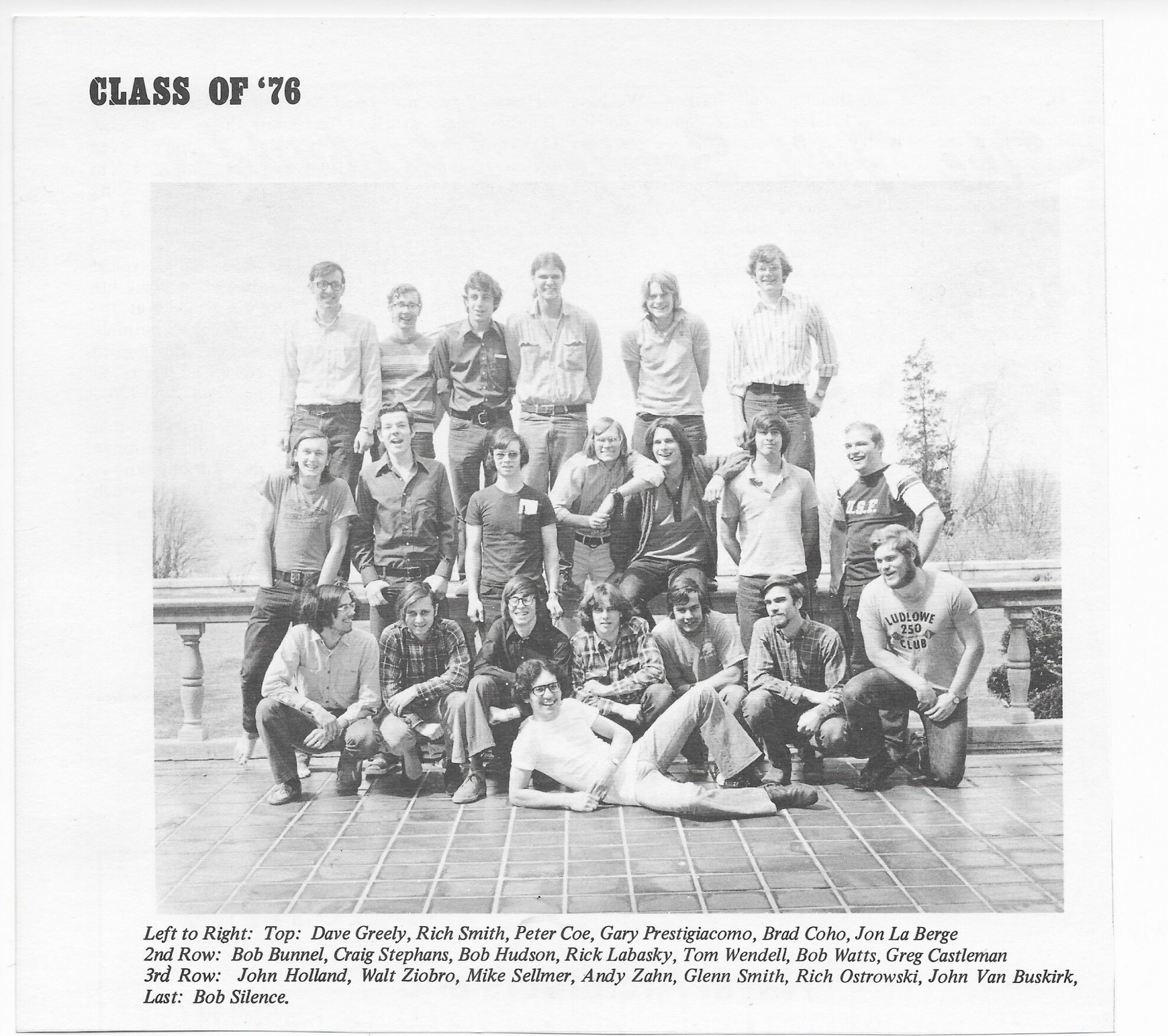
Fresh Faces of the Class of ’76: Jon is pictured on the top right with his freshmen Webb classmates.
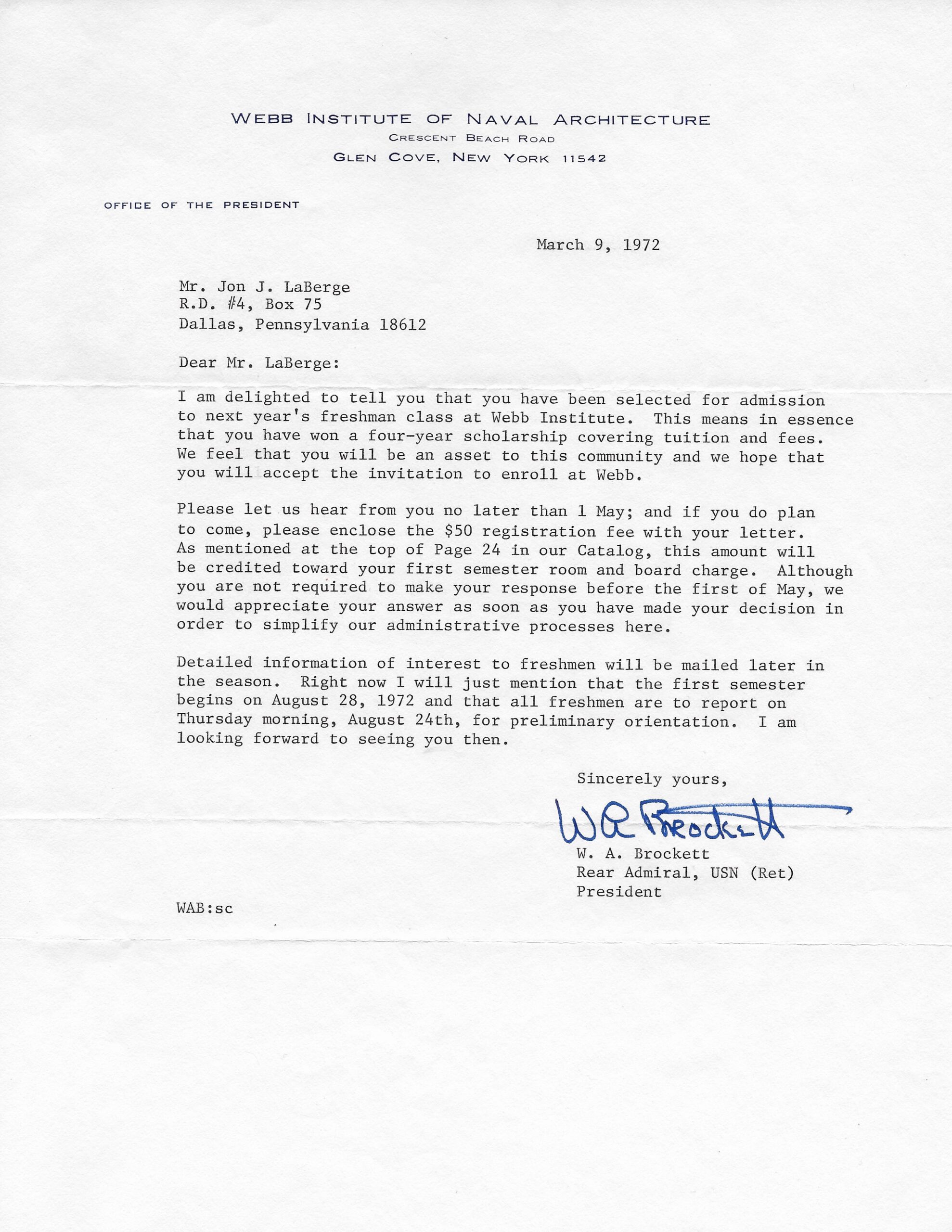
Vintage Note: Jon received a milestone – his 1972 acceptance letter from Webb with a four-year full scholarship covering tuition and fees.
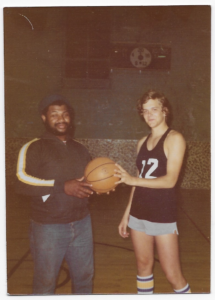
Iconic Duo: Jon and Coach Oscar Steadman celebrate a winning streak in Webb Institute’s Basketball history.
After Webb, you had gone to other prestigious organizations, from Harvard Business School to Gibbs & Cox. What is your proudest career accomplishment?
As I look back at my career, it is hard to identify a single project or transaction that stands out as a career-defining accomplishment. Rather I am most proud of two characteristics that thread their way throughout my career. First, I had the opportunity to work for a number of impressive managers at various stages of my career and I am proud of the fact that in several cases I worked for them multiple times. It’s one thing to convince someone that you are the right candidate for a job during an interview. It is quite another when someone who knows you well and has worked with you in the past comes to you and asks you to join them again at a different company or new position. This happened to me five different times in my career and is a testament to the work ethic that I learned and developed while at Webb. Second, I am proud of the impact I have had on young people that I hired into my organizations. By providing them with structure, resources, and opportunities and encouraging them to develop their own sense of intellectual curiosity and work ethic, I am proud of their accomplishments and the professionals that they have become.
You work with a non-profit organization, Coffee for Good which emphasizes community service and social responsibility. What lessons from this experience do you take to your work at Webb and in life in general?
It is really more the other way around. When I joined the Board at Webb, I had limited experience working with non-profit organizations. The terminology, the accounting treatments, the reliance on fund raising rather than sales to support the mission, were all new to me. As Chair of the Finance Committee of Webb’s Board for ten years I have come to understand the keys to a successful non-profit operation. It all comes down to having a mission that resonates with a community that is willing to support that mission. We are fortunate to have that in abundance at Webb where our alumni, friends, and the industry support Webb year after year. This is a tribute to the philanthropy of our founder William Webb. Regarding Coffee for Good, my wife and I were involved in its founding because of its mission and how that mission resonates with its community. Coffee for Good (coffeeforgood.org) operates a high-end coffee shop in Greenwich Connecticut that serves as a training platform for special needs young adults, works with local employers to define appropriate job responsibilities for our trainees, and then matches our graduates up with those jobs. As a start-up, it was important for Coffee for Good to have individuals involved who understood all aspects of facilities, operations, finance, development, etc. This is where my experience at Webb has allowed me to have a material impact on Coffee for Good’s successes to date.

A Founding Member of Coffee for Good: Jon helps empower people with disabilities and believes in fostering an inclusive community that gives jobs and opportunities to all.

LaBerge Terrace: The sustainable rooftop terrace was sponsored by Jon, his wife, Deborah, and their son, Peter as part of the Campaign for Webb.

Family Portrait: Jon, Deborah, and their son, Peter – capture love, warmth, and support all in one frame.
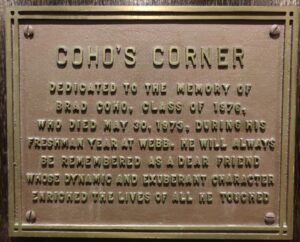 Can you share a story or experience from your time at Webb that still resonates with you?
Can you share a story or experience from your time at Webb that still resonates with you?
I could tell you something about the long hours of hard work that many Webb students can relate to, or Webb’s (almost) winning season in basketball in 1974, but instead I would like to share a somber remembrance that has special meaning for the Class of ’76. Fifty years ago this month, as my class was wrapping up its freshman year at Webb, we lost our first classmate due to complications following an emergency appendectomy over Memorial Day weekend. Brad Coho was the life of every party, an accomplished sailor and soccer player, the president of our freshman class and my roommate at Webb. I bring this up, not to put a damper on this blog post, but to ask that next time you are on Webb’s campus, look for the bronze plaque on the wall in the Pub near the pool table that designates that spot as “Coho’s Corner”, think of the promising young life cut short, and remember to make the most of the time that you have with your friends and family – life is short, way too short in Brad’s case.
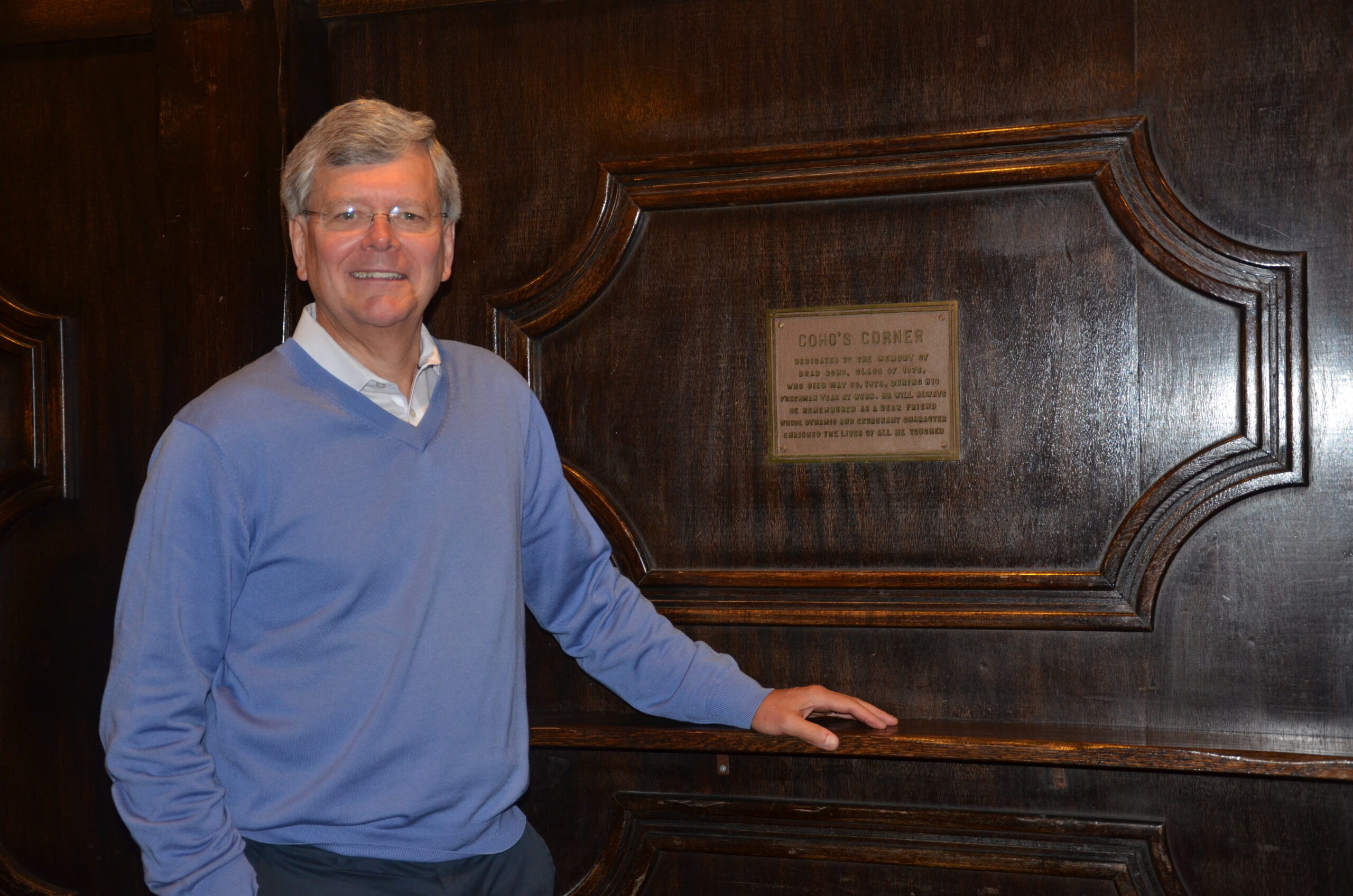
Coho’s Corner: Jon stands beside a plaque at Webb’s pub, honoring his late roommate and friend, Brad Coho.
What advice do you have for students on life after graduation?
After spending four years with a bunch of over achieving, highly motivated, intellectually capable classmates, be confident as you move into this next chapter in your lives, regardless of where you ranked in your class at Webb. Not everyone you will work with will approach technical challenges in the same rigorous way that you and your Webb classmates do. This is a real strength that you can bring to your new employer that will differentiate you and create opportunities for you. By the way, this applies whether you choose to work in the marine industry or branch off into an entirely different career. I spent over half of my career in financial services and I used my Webb education every day. Aside from your professional endeavors, make an effort to find time to stay in shape physically (you won’t be 22 forever), and volunteer your time to a cause that has meaning for you. Whether this is a technical panel, a professional society, Webb’s Board or Alumni Association, or a local religious organization or charity; they could all benefit from your experiences and expertise and your involvement could materially add to your satisfaction and quality of life. Pick a cause that has meaning for you, make a commitment, work hard and good things will happen. And lastly, support your alma mater. It really is a special place and has launched the careers of nearly 2,000 young adults over the past 130 years. You are the legacy of William Webb – pay it forward to the next generation.
Emily Harris Joins Webb as Assistant Director of Academic Services
We are pleased to announce that Emily Harris has joined Webb Institute as Assistant Director of Academic Services, reporting to Dean Matthew Werner.
Emily has a strong background in education and mental health, having earned a Bachelor’s in Psychology and Social Work from the University of Texas at Austin and a Master’s in Social Work from the University of Southern California. She has worked in fundraising, helping run a mental health advocacy nonprofit, in addition to direct clinical work with adults struggling with mental illness. She tutored students, specializing in math. Most recently, she served as the Director of Academic Services for a boutique education company.
Emily will take over the responsibilities previously held by Josie Wilson (except career services and exchange program which were transferred to Alyssa Caliguri) over the course of an extended transition.
Please join us in welcoming Emily to her new role and home at Webb!
Sailing Toward Sustainability: Charting a Greener Course with Peter Bryn
As we celebrate Earth Day on April 22nd, we are thrilled to have Peter Bryn, a climate change expert and advocate, shed light on the critical role of sustainability in the shipping industry. The shipping industry is a global player in driving international trade and is responsible for transporting 90% of world trade. It also contributes to environmental challenges such as pollution and greenhouse gas emissions. Peter (Webb ’06) conveys the responsibility of maritime-focused engineering institutions like Webb in fostering this change.
Peter devoted his career to championing environmentalism and sustainability in the shipping industry. He has testified before Congress on zero-emission shipping and is currently spearheading Eolic Green Ammonia, harnessing renewable resources to create a more sustainable future. He previously worked for MAE Energy, ABB Marine & Ports, Citizen’s Climate Lobby, and ExxonMobil.
Peter encourages us to think forward and ensure that the next generation of Webbies and engineers contribute to a greener future for all.
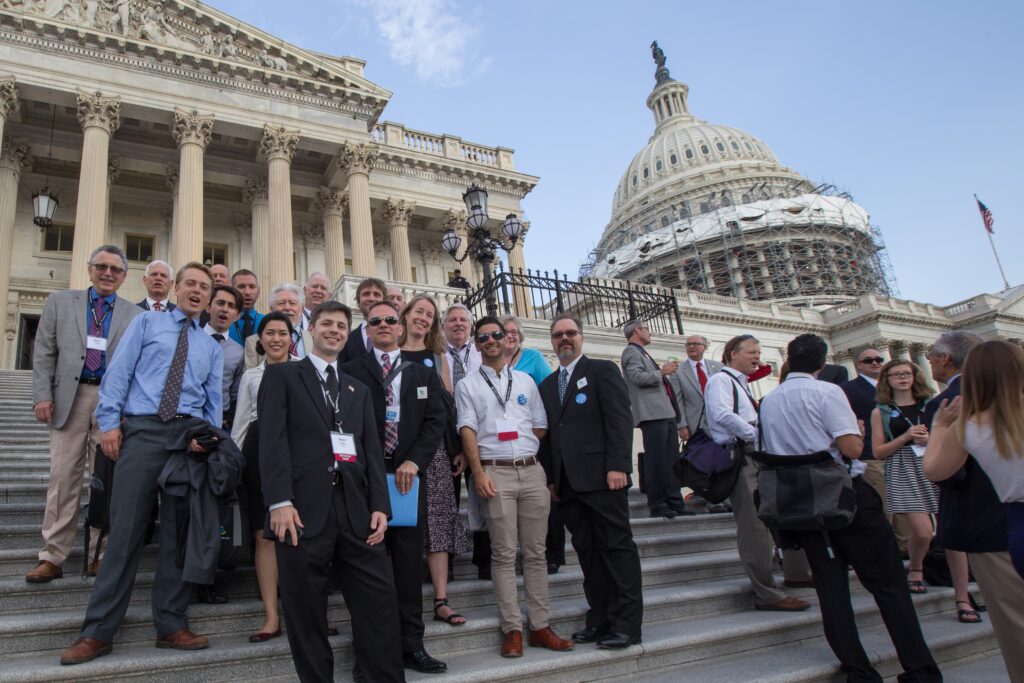
Toward Sustainability: Peter and his colleagues champion green initiatives on the steps of Capitol Hill in Washington DC.
What inspired your interest in sustainability (especially in the shipping industry), and how important is this sector right now as more and more companies talk about ESG – Environmental, Social and Governance?
Sustainability has always been with me, though my interests have evolved. When I was younger, I had an empathic urge to care for “the environment” which I saw as being unable to defend itself.
That inclination turned into a mission and passion in grad school when I gained a much deeper awareness of climate change. Once you know it, you can’t unknow it. I decided at that time my life’s personal and professional focus would be on climate.
That focus has strengthened as I’ve gained a greater appreciation and understanding of the complexity, diversity, interconnectedness, and usefulness of the ecosystems on our planet, both for their own sake and because I realize how much our own survival depends on it.
As for applying my climate focus to the maritime industry, that’s both interest and pragmatism. Interest because I have a passion for the industry, and pragmatism because it is a place where I can add the most value.
What role did Webb play in motivating you to take on the role(s) that you have had in addressing sustainability in transportation?
When I was at Webb, I was the “green guy” in the school, but I’m not sure many others shared that passion. I’m pleased to see a growing interest in this topic at Webb.
My time at Webb didn’t directly impact my sustainability mindset. But Webb did prepare and position me with the tools and connections needed to have a successful career in which I could make sustainability the focus.
A Webb transcript, Webb professional connection, and Webb alum-turned-MIT-professor facilitated my path to MIT for grad school. After MIT and with a freshly formed decision to focus on climate and energy, another Webb connection helped start my career with ExxonMobil.
Fifteen years on I continue to find opportunities where my Webb network, education, and connections still help me on a regular basis. Just today I developed a basic heat balance model on which I’m sure Professor Wiggins would leave lot of green ink on if he saw it, but it was good enough for the ballpark estimates we needed!

Testifying before Congress: Peter testified on climate change and what the federal government can do to invest in zero-emissions technologies for the marine industry.
We hear all the time about the importance of reducing our carbon footprint; what exactly is carbon? How much carbon is the shipping industry producing, and what can we do to help mitigate this impact?
Most of us learned about the greenhouse effect in grade school, where carbon dioxide (CO2) and other gases in the atmosphere effectively capture radiant heat waves rather than allowing them to escape back out into space, thereby keeping the planet habitable. Adding a Webb-level spin to it, I analogize CO2’s behavior to Differential Equations where certain light wavelengths in the visible spectrum excite different natural frequencies of a CO2 molecule thereby capturing the energy.
It’s easy to take a stable climate for granted since it’s all humanity has ever known. But you don’t have to look far back into Earth’s history or out to other planets (think of frozen Mars with little atmosphere or sweltering Venus with runaway greenhouse gases) to realize how precious and fragile our climate is. And now for over a century human activity has been actively destabilizing this delicate balance as we extract gigatons of stable carbon chains from underground, burn them, and release the resulting CO2 into the atmosphere.
Shipping is estimated to contribute 3% to global CO2 emissions. The United Nations delegated responsibility for marine greenhouse gases (GHG) to the International Maritime Organization (IMO) which took its boldest step in 2018 by setting industry goals: reductions of 40% and 70% of CO2 per transport work by 2030 and 2050, respectively, and a 50% reduction in total annual emissions of GHG by 2050. Discussions continue on even tighter goals for 2050.
My inner climate advocate knows that policy is moving intolerably slow; these changes should have started forty years ago. And yet, as an industry professional I’m both shocked and ecstatic at how lightning-fast things are moving relative to what we usually expect.
What can each Webbie do? As an individual, tell your members of Congress to support strong climate policy including carbon pricing. As a maritime professional, get smarter and become champions for implementing ammonia, battery electrification, and other zero-emission alternative fuels.
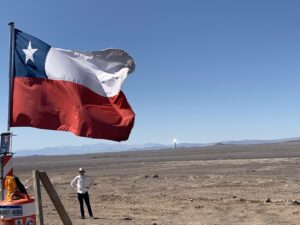
In Chile: Captured at Cerro Domindor Solar Thermal Plant.
What is green ammonia, and what led you to establish a company focused on sustainable fuel?
Green ammonia is ammonia made from renewable energy. A “rainbow” of colors is emerging to describe different hydrogen production pathways – “gray ammonia” referring to traditional ammonia produced from natural gas (highly carbon intensive), “blue” from natural gas but with carbon sequestration, and “pink” from nuclear.
Once the power has been sourced, the only other “ingredients” for green ammonia are hydrogen (generated via the electrolysis of water) and nitrogen (separated from the air). A more detailed explanation is available on our website.
My migration into green ammonia production was a three-step process.
First, after long considering how to decarbonize oceangoing vessels, I was excited that the industry seriously tackled this question in the past five years. Investigating the handful of proposed fuels including ammonia, I coupled what I was reading with my understanding of vessel operations, economic drivers, and the physics and thermodynamics of production (thanks Webb!) and I became convinced that ammonia will prevail for marine in a decarbonized world.
Second, I stumbled upon a Houston-led, Chilean-based green ammonia startup, which allowed me to see a real green ammonia developer in action. I had several takeaways from that experience but perhaps most important was meeting the founder, a serial entrepreneur who created several impressive large industrial companies in a variety of industries, which inspired me to ask, “why not me?” While it was a great company and team, it was not the right fit, and we parted ways back in August.
Third, the USA’s Inflation Reduction Act was passed which created a massive tax incentive for US projects to create green hydrogen. That legislation turned the attention of the world from the areas that have been hotbeds for green ammonia production – Australia, Namibia, Oman, Saudi, Egypt, Chile – to the USA.
So, I started Eolic in August and we (now a team of four) have been making great progress since.
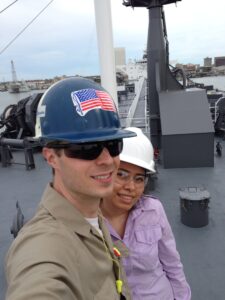
Picture Perfect: Peter shares a heartwarming moment with his partner/ girlfriend, Sandy, atop a ship, showcasing the fruits of his labor in the pursuit of a greener and more sustainable future.
How impactful do you think engineering colleges like Webb play in educating the next generation of professionals toward greater sustainability and environmental responsibility?
It’s been remarkable to watch solar, wind, electric vehicles (EV’s), batteries, and hopefully now hydrogen move from niche to mainstream to often becoming the cheapest energy option available. How this happened has revealed a “chicken and egg” trend each time between policy and technology.
On the one hand, policy is needed to help bring new technology to market at scale, since that’s where the cost savings emerge. This is an exercise of democratic action that happens when politicians hear from their constituents. In this sense, I’d urge Webbies and all engineers to remember their power as citizen advocates by calling on their elected representatives to support strong climate policy.
On the other hand, politicians more readily support new policy when solutions become “real.” It’s far easier to pass an EV mandate once EV’s are already being adopted and are proving to be better and cheaper. Scientists, engineers, and entrepreneurs must be ambassadors to bring new clean tech solutions to market. Once people see clean tech in action, and saving them money, they become natural advocates.
What advice do you have for Webb students on life after graduation?
These may not be remarkable, and some are cliché, but hopefully all are useful:
- Live for something greater than yourself.
- Be a generous listener; be humble.
- Don’t burn bridges.
- Be proactive, but don’t always be looking for your next job. Instead, focus on doing great work and increasing your value, and opportunities will emerge.
- Don’t be afraid to try new things, but always try to find ways to leverage past skillsets. Synergies will naturally surface.
- Build and leverage your network – LinkedIn is a fantastic tool.
- Take risks, but calculated ones.
- Think critically.
- Try to be observant and learn to read people.
- Don’t be naive but give folks the benefit of the doubt that they’re acting in good faith.
And most important of all, donate back to Webb!
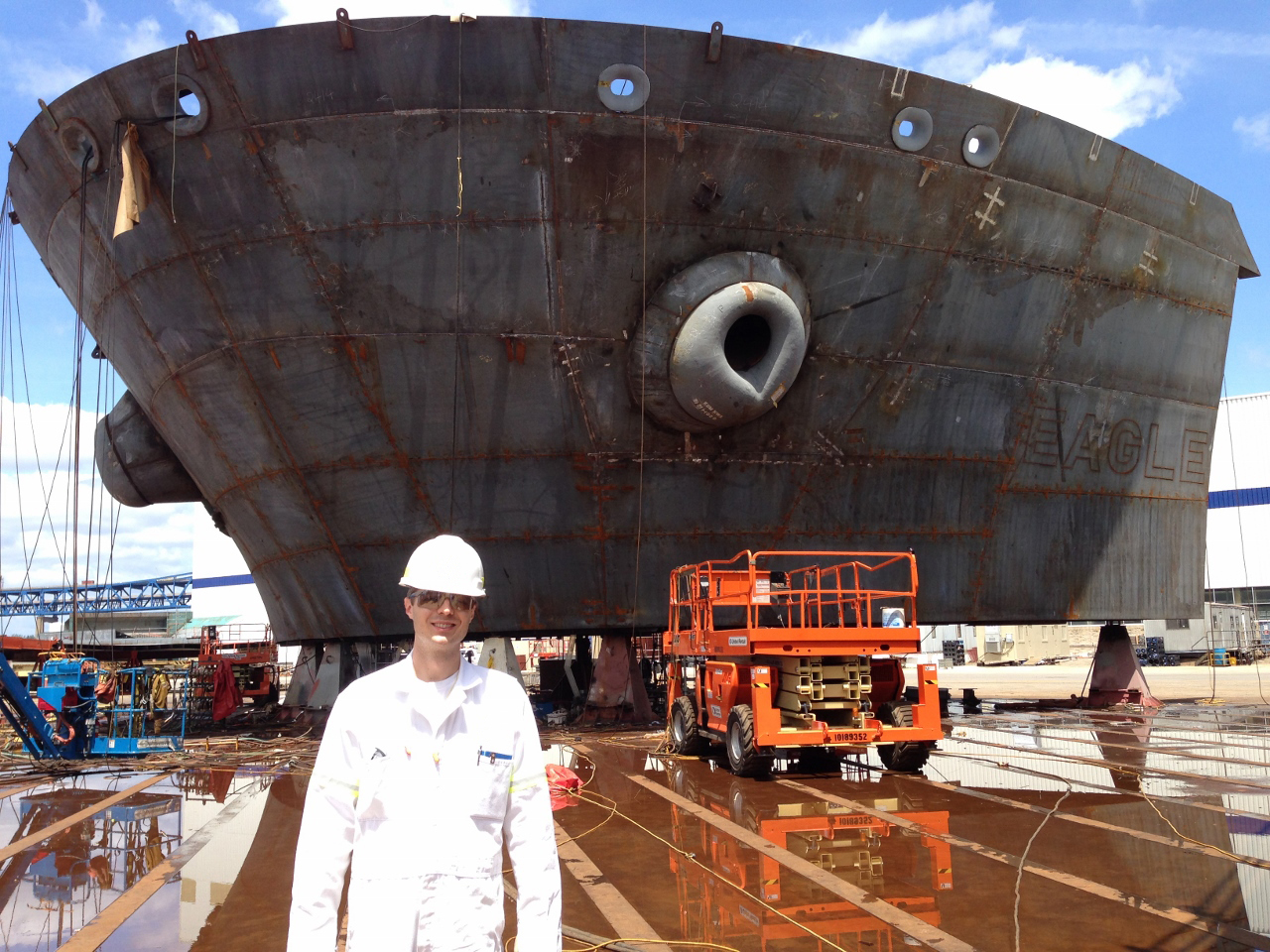
Standing Humbly: Peter poses in front of a colossal ship, symbolizing the power of human innovation and the huge impact on the maritime industry.
AIA Recognizes Couch Academic Center design
The American Institute of Architects recognized the award-winning Couch Academic Center in their quarterly magazine Oculus.
“Adding to the 1912 mansion was complicated. What new structure could rest comfortably next to it?” said Dr. Carol Bentel, FAIA, ASID, FIIDA, partner at Bentel & Bentel. “We decided the addition should support the majestic building, not compete with it, or touch it. We also felt the history of the site was as important as the building.”
Read the full article on the Oculus website.
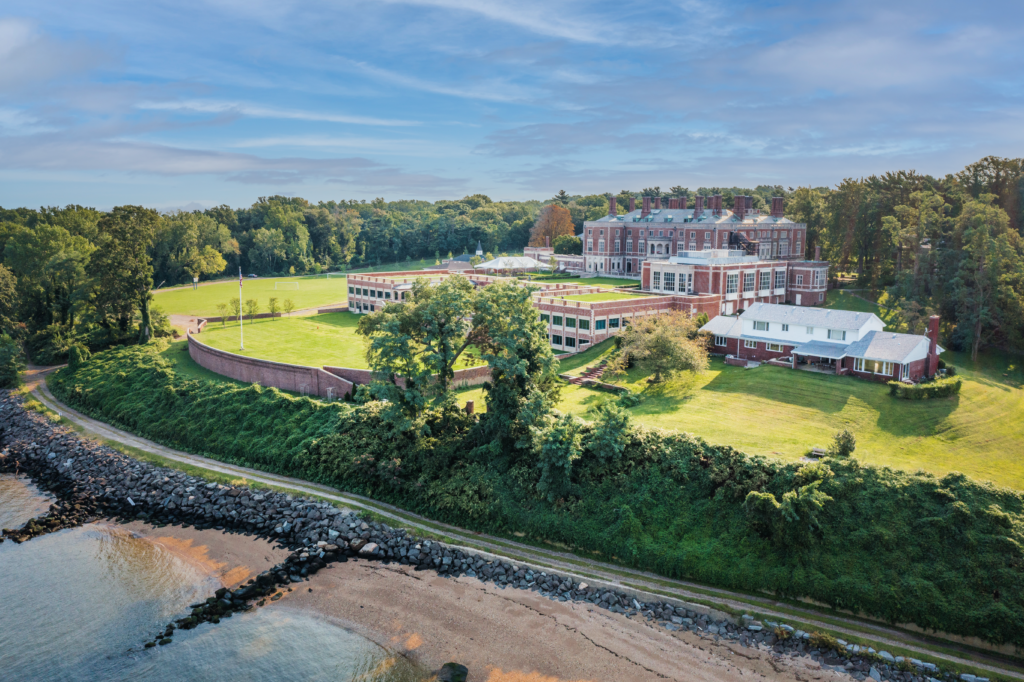
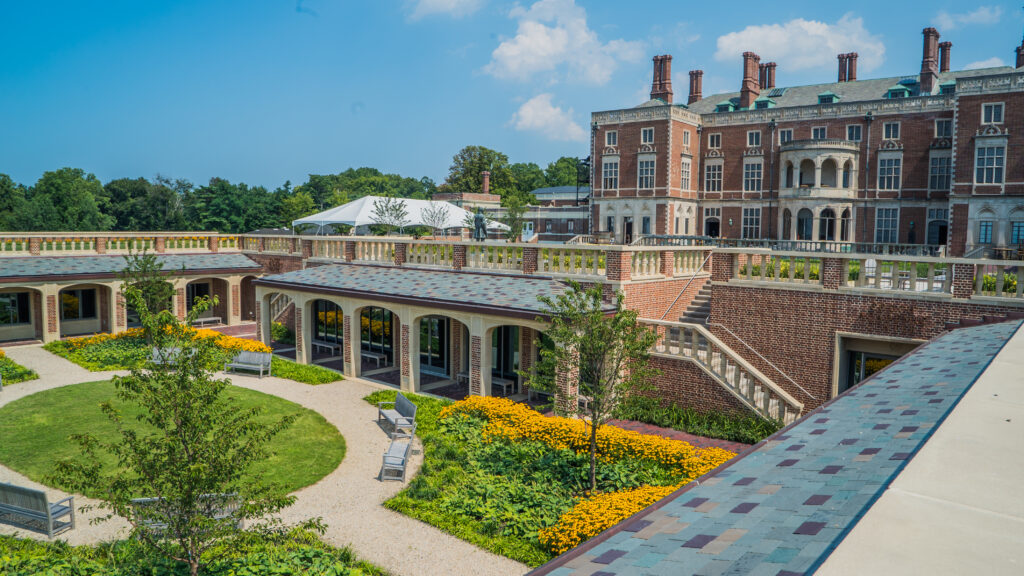
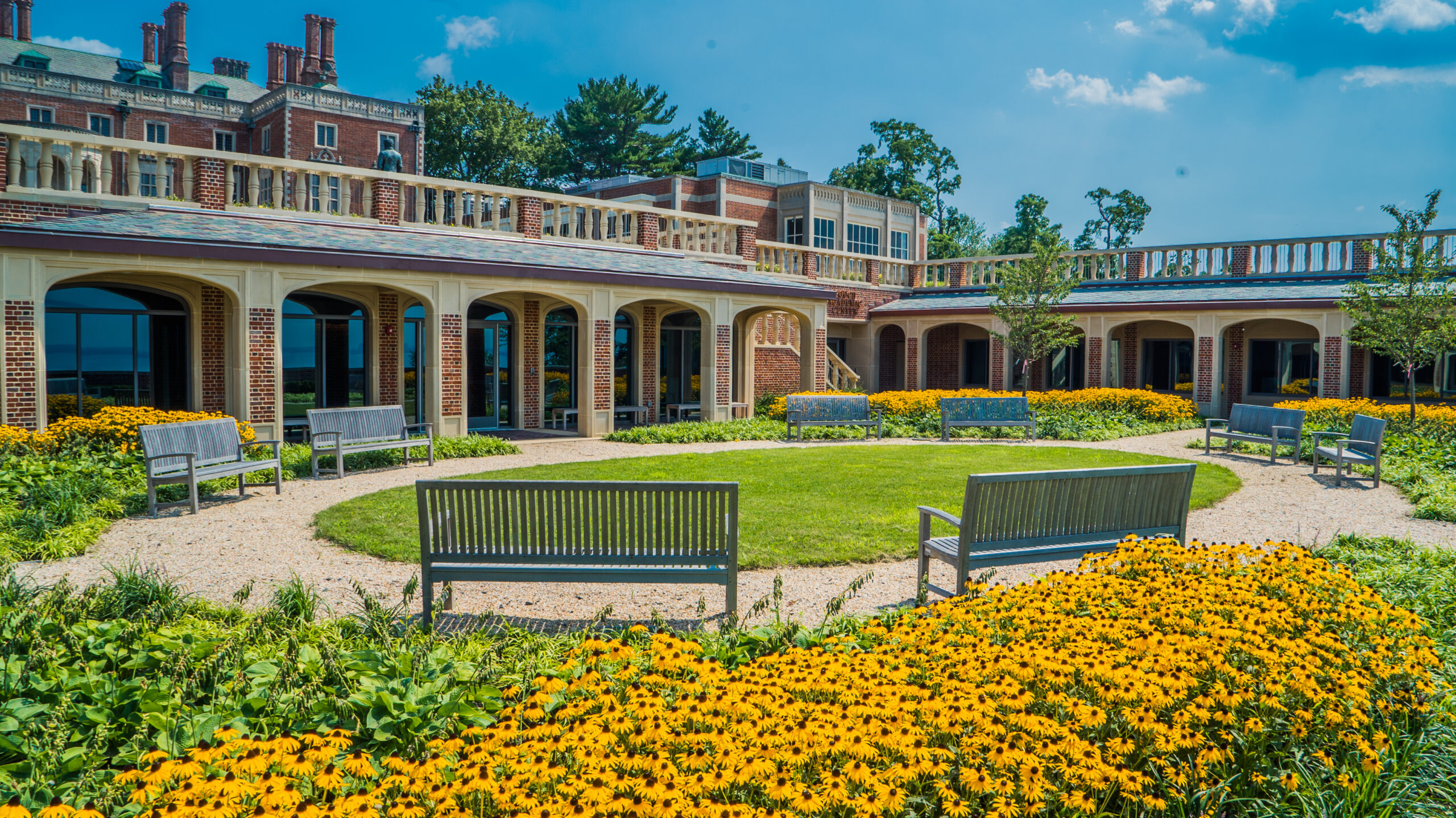
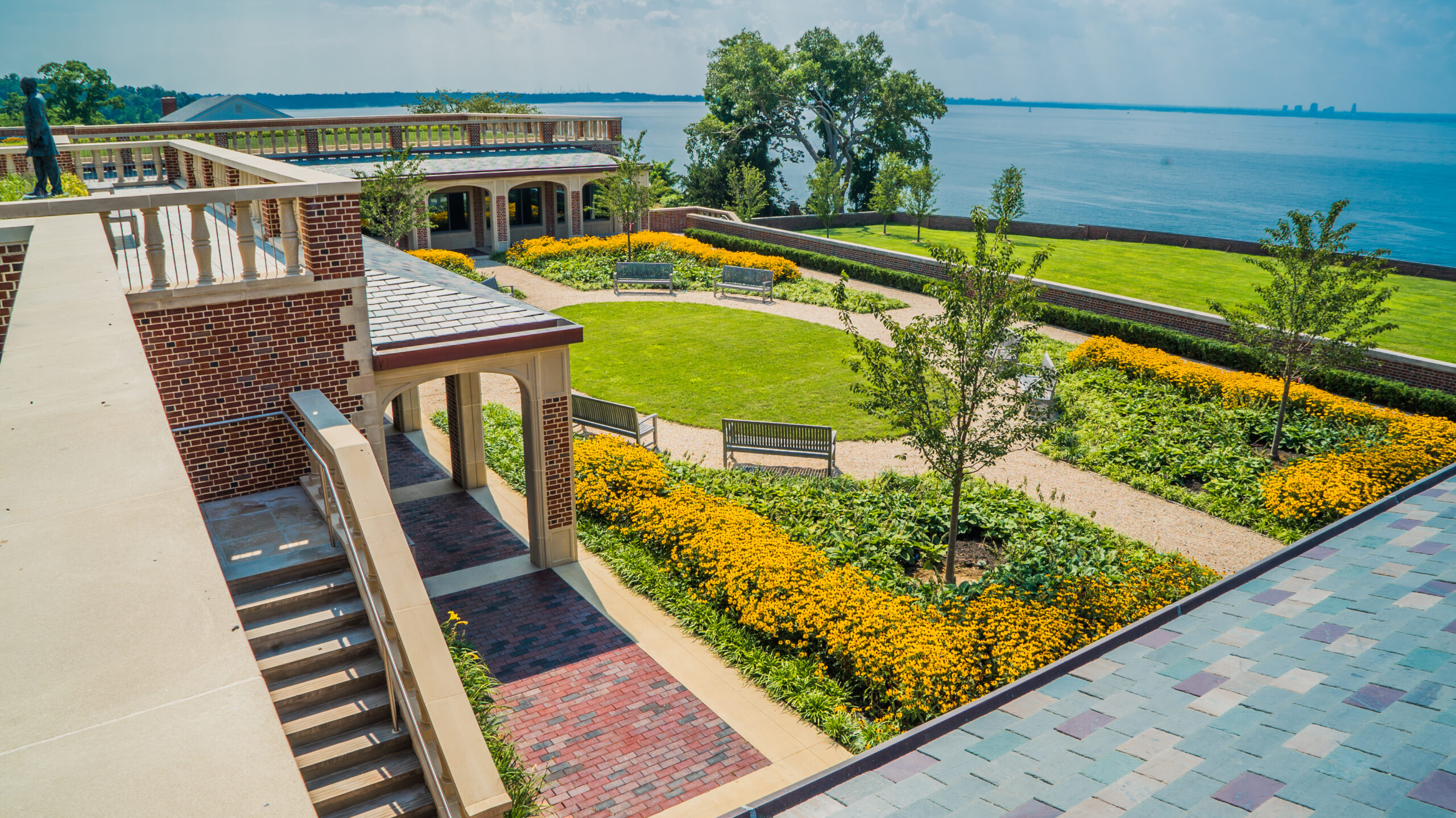
The Brocket Arms Pub Gets a Facelift
by Gailmarie Sujecki (Hon.)
How the Pub Came to Be
Through the academic year of 1971-72, Charlie Finegan (then Plant Superintendent) and his crew were busy building a new student pub in the basement of Stevenson Taylor Hall. With the completion of the new J. J. Henry Auditorium in the spring of 1971, the lecture hall located in the area that had formerly been a bowling alley was no longer necessary. As soon as it had become apparent that this area would be available, Admiral Brockett, responding to requests he had received from several students, had plans drawn up for the installation of an English-style student pub in the space.
Originally the pub was planned as a Parents’ Fund project. A watercolor rendering was prepared and displayed during Parents’ Day and Alumni Homecoming. It was at the Alumni Homecoming that Mr. Leslie Durant ’39 saw the rendering. He and his wife suggested that they would like to help with making the pub a reality. Not having heard anything, Admiral Brockett called Mr. Durant who in turn told him, “We’ve got them started at the joinery in England, send them some dimensions.” Brockett was delighted, however, when Leslie Durant looked at the plans and offered on the spot to pay the full cost, which meant that construction would start immediately. Mr. Durant agreed to the donation with one condition – that the name would remain the same: The Brocket Arms Pub. Admiral Brockett, a man with a sense of humor agreed.
Les Durant modeled our Pub after the Brocket Arms Pub in the UK. The British firm supplied all the lumber already cut to size and ready to assemble. The entire pre-fab pub arrived in the fall of 1971, all in a single forty-foot box weighing several tons. The box was unloaded and work began. By the end of the spring 1972 semester, the pub was nearly finished, though it was not ready for operation until the following fall.
Mr. Durant had furniture sent from Peru, and the old Webb pool table was rebuilt. When it was decided that the furniture was not appropriate for the English pub setting, Mr. Durant sent a check for new furniture. The old furniture found its way into the upper classrooms. Also sent were various befitting antique decorations. But something was still missing in the eyes of the students. Ah yes, a sound system! Mr. Durant once again came through with a substantial donation earmarked for The Brocket Arms Pub sound system.
Modern Day Improvements
During the winter of 2021, Kirk Lehman P’22 spearheaded a renovation of the pub, recognizing how special this space is for the Webb family, especially for current students. In addition to his generous cash gift, Mr. Lehman gifted new oak flooring, moldings, and his time and energy spent staining the moldings, arranging for the purchase and installation of a new pool table. To help underwrite the cost of the renovations, Webb trustees, alumni, and past parents joined Mr. Lehman by making generous contributions to complete the project. We want to give special thanks to Richard Celotto ’73, Nolan Conway ’15, Hampton Dixon ’11, Katherine Dixon P’11, Jay Edgar ’87, John Hootman ’01, Andrew Ko ’16, Jon LaBerge ’76, John Malone ’71, Mark Martecchini ’79, Keith Michel ’73, Gene Miller ’96, and Wombi Rose ’09 for their generosity!
Reference Material: The Centennial History of Webb Institute; Fall 1973 Binnacle, and Professor Emeritus, Rick Neilson ’70.
Article as seen in Webb News 2021.
Professor Werner Chosen For Symposium
Glen Cove, N.Y. November 4, 2014 – Seventy-seven of the nation’s most innovative, young engineering educators have been selected to take part in the National Academy of Engineering’s (NAE) sixth (FOEE) symposium. Matthew Werner, the American Bureau of Shipping Chair of Naval Architecture and Marine Engineering, was selected to represent Webb Institute. The focus of Professor Werner’s work was “Professionalism in Engineering Education.” Read more…

